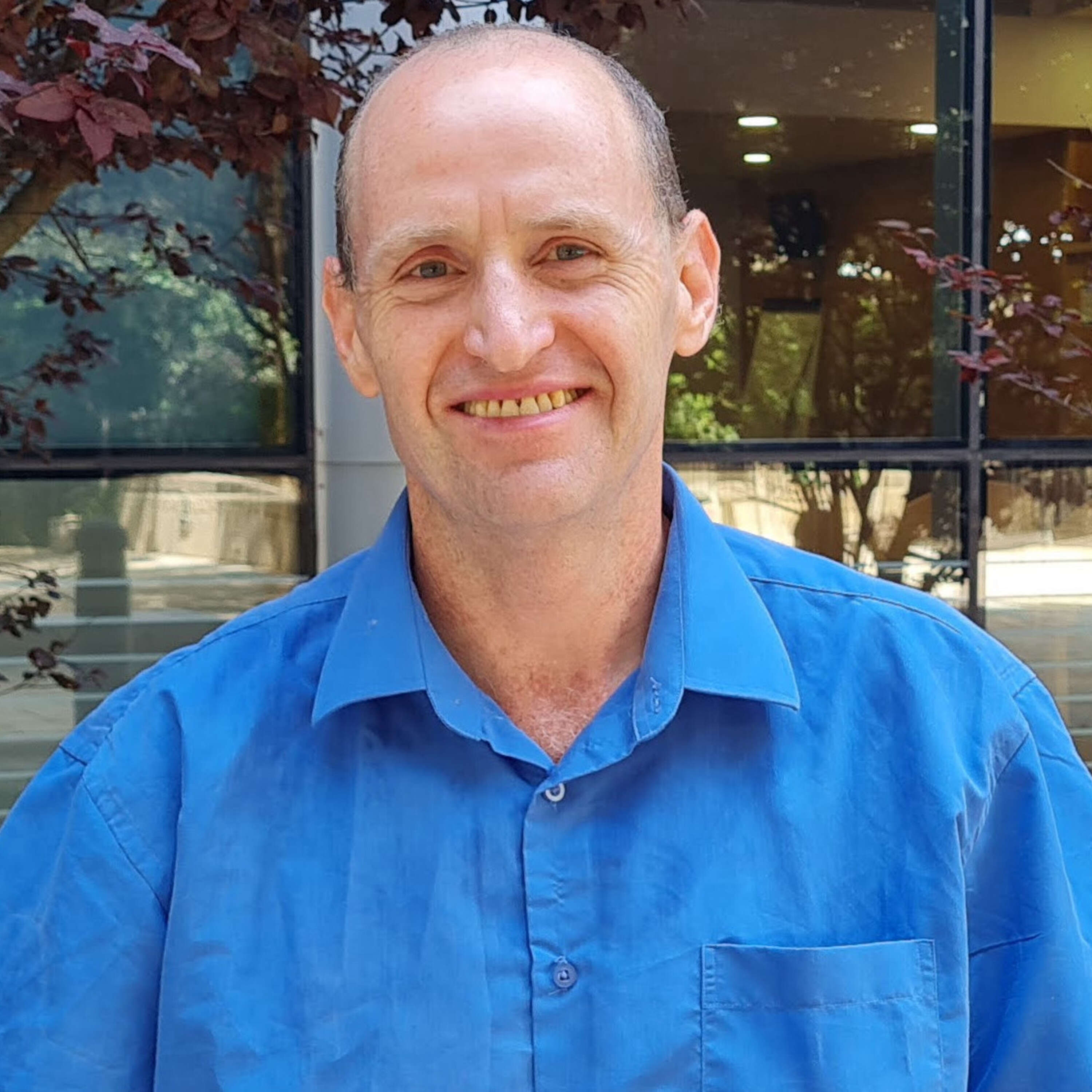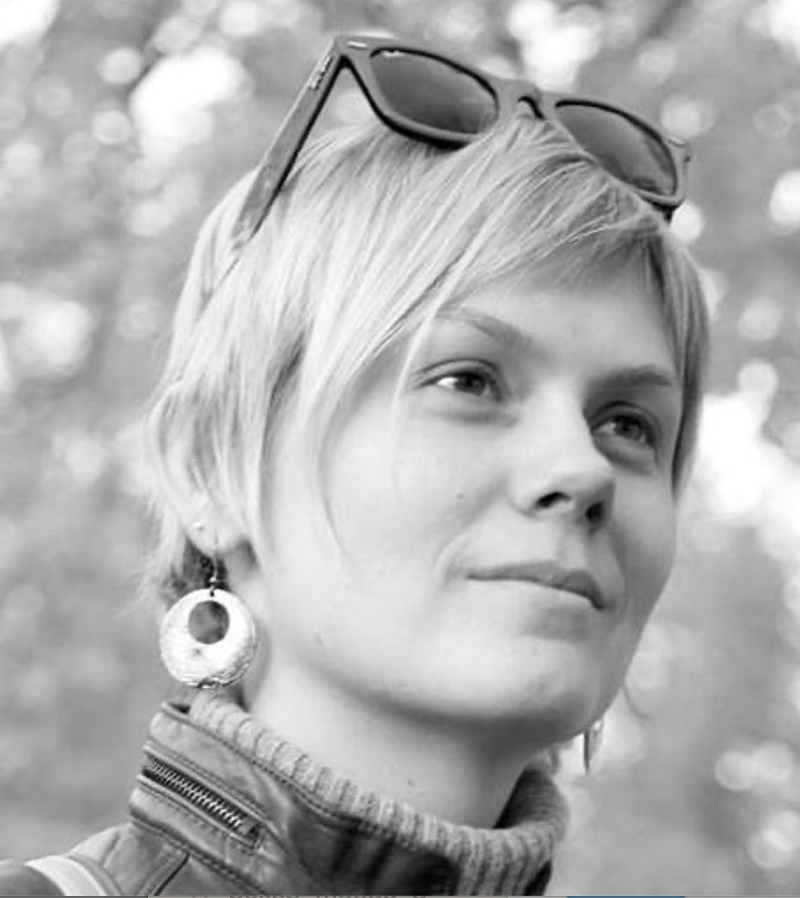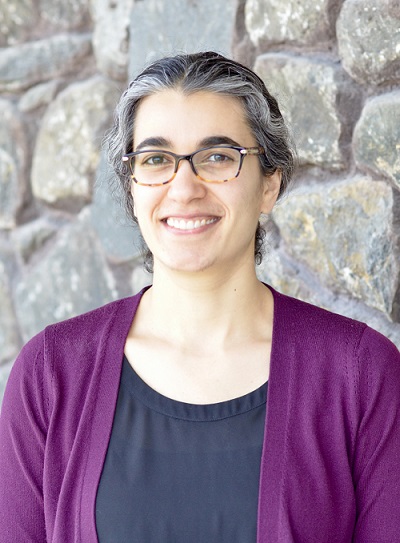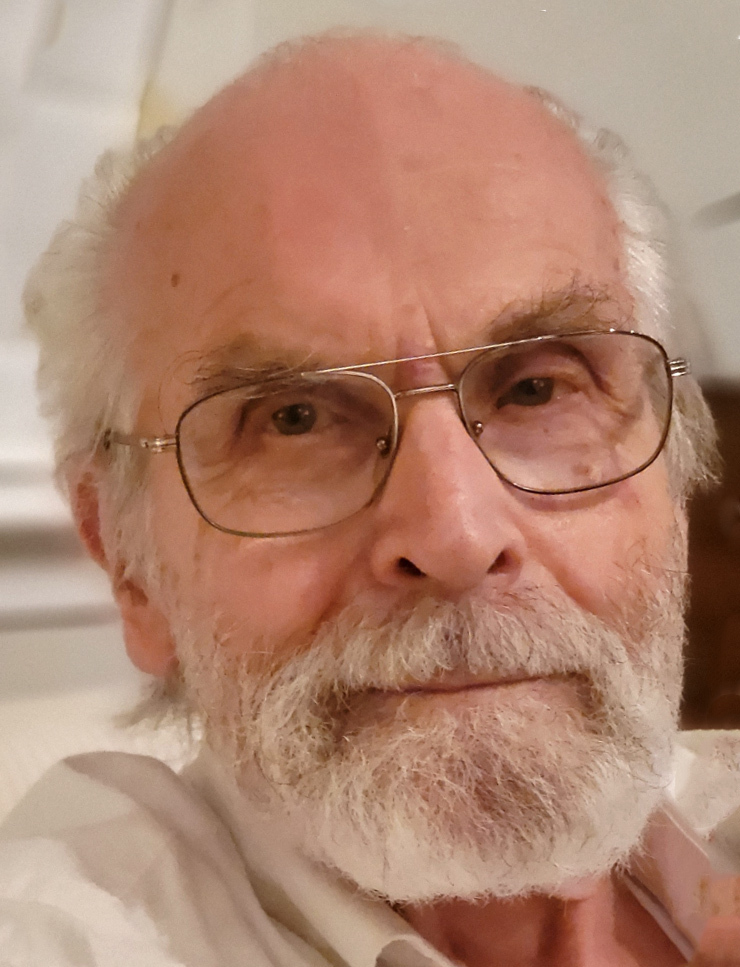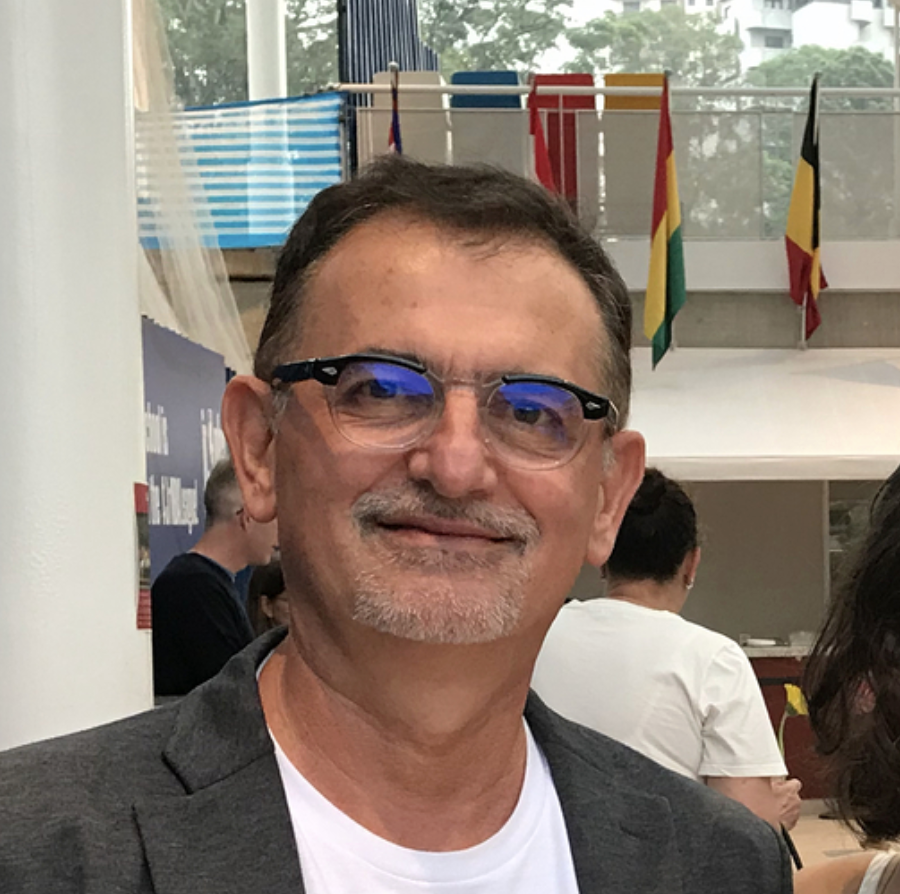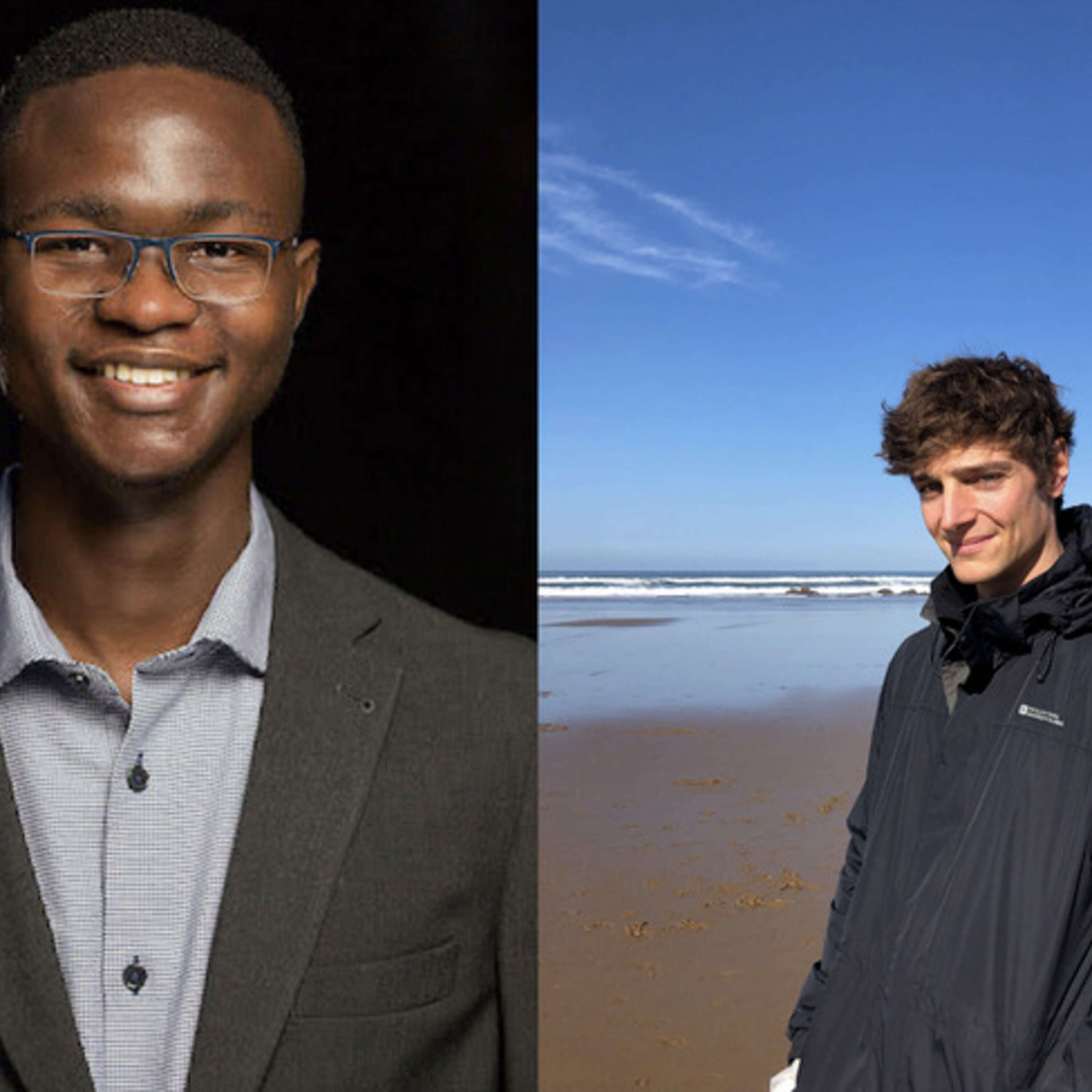Fostering Growth Mindedness as a Manager: A Conversation with Anu Bhamidipaty
- 0.5
- 1
- 1.25
- 1.5
- 1.75
- 2
Jon Lenchner: Hello, this is Jon Lenchner, and welcome to On Not Knowing, a series of conversations about embracing a growth mindset. Today's guest is Anu Bhamidipaty. Anu is a person who embodies growth mindedness in a very special respect. She's a manager known for her fierce dedication to the growth of the people she manages. It's absolutely a treat to have you here Anu.
Anu Bhamidipaty: My pleasure to be here too, Jon.
Jon Lenchner: So I know that you grew up in, I think it's South India. Can you tell us a little about that?
Anu Bhamidipaty: Yeah, I was born in South India, but when I was just a few months baby, my parents actually moved to North India, so I spent a lot of time in my education in the north and then we moved to West India. So my father was in a public sector undertaking job, so it was a transferable one. And we moved quite a few places growing up in India.
Jon Lenchner: And so did you have siblings?
Anu Bhamidipaty: I have an elder brother.
Jon Lenchner: Oh, so not a very large family. I know some Indian families are very large.
Anu Bhamidipaty: Yes. And it was a nuclear family too, so it was really a small family, just the four of us.
Jon Lenchner: I see. And you're still close with your family? Are they still in India or do they come to the US?
Anu Bhamidipaty: Yeah, both ways. I still visit India. COVID was probably the longest gap that I didn't see them, but very close to the family. I visit them often and they come here too.
Jon Lenchner: And so what part of North India were you able to see? The Himalayas?
Anu Bhamidipaty: I was in Delhi and then spent a few years in Kolkatan. I still say Kolkatan because that was the name then of course it's now called Kolkata, but seen quite a bit of North India. And it's interesting you mentioned Himalayas because the last trip that I visited my parents, we actually did that. We went on a Himalayan tour and saw the Himalayas, not back then, but very recently.
Jon Lenchner: Oh, nice. In India or Tibet or where? Nepal?
Anu Bhamidipaty: In Nepal.
Jon Lenchner: Nepal. Nepal. I guess that's closest to India. Yeah. Oh, nice. Very nice. Oh, I've always wanted to do that myself. So I'm jealous. And I imagine at your young age, there wasn't that much technology yet in India, so how did you get interested in technology?
Anu Bhamidipaty: Yeah, I was always very much interested in math, and because of my elder brother already went down the path of doing computer science and technology and he shared a lot of his experiences and stuff with me. So when I was waiting for my result of college admissions, it was getting delayed and I actually joined a math honors college in Delhi. But my brother at that time had already done his studies in computer science and engineering and he shared his experience and motivated me not to miss this opportunity. You were right at that time. This was the. com era. Not much was happening in India. We didn't have even internet at that time in most of the locations. I really got excited. I ended up joining computer science and engineering in my college.
Jon Lenchner: I see. And so your brother, how much older is he than you?
Anu Bhamidipaty: He is four years older.
Jon Lenchner: Four years, okay. So I guess you always held him in pretty high esteem. So his guidance was accepted by you? I know, in my siblings they're too close in age. We had too much rivalry.
Anu Bhamidipaty: We fought too, but yes.
Jon Lenchner: Okay, good. Can't imagine a sibling without a little bit of that. But he paved the way, I guess, a little bit.
Anu Bhamidipaty: Yes.
Jon Lenchner: Did he also come to the US? I'm curious.
Anu Bhamidipaty: Yes, he also had experiences in the US. He's currently in Canada, but yes, both of us are in the kind same field.
Jon Lenchner: Okay. And so did you go to a college in India? What was your college experience?
Anu Bhamidipaty: So I did my bachelor's and my master's in India. I did computer science engineering in my bachelor's in South India. And then I did my master's from IIT Bombay. I was not living with my family during my education. The major was information technology.
Jon Lenchner: I see. And then while you were in college, your family stayed in Kolkata?
Anu Bhamidipaty: Yeah, they were in Delhi at that time.
Jon Lenchner: Oh, Delhi. Okay. I see. All right. And then did you go right to IBM from your masters?
Anu Bhamidipaty: Yeah, I worked for a few months in between, but then yes, right to, this was IRL, IBM India Research Lab in Delhi, and that's where I joined in 2003.
Jon Lenchner: Oh wow. And you were one of the first employees of IRL?
Anu Bhamidipaty: Yeah, actually one of the first employees when IRL decided to set up another location in Bangalore, I was the first employee, I think, at that time.
Jon Lenchner: Oh, wow. So I'll many listeners and I myself, I've never been to India and I've never been to the India Research Labs. So paint us a little picture of what the lab is like. What is it physically like? What are the cities like? How does it differ from here?
Anu Bhamidipaty: So yes, India Research Lab started in Delhi. It's a beautiful location, in the sense that it was inside IIT Delhi. So it was a location where you get interaction with most of the prominent technology people. It's a premier institute. So we had a small building inside the IIT campus in Delhi.
Jon Lenchner: So IIT is one of the premier technology universities, maybe the highest ranked in India?
Anu Bhamidipaty: Correct. It stands for Indian Institute of Technology. We have a few IIT spread over India, and IIT Delhi is one of those, Bombay being the other. And there are a few others too. But we started up in IIT Delhi campus and it was very interesting to be back in the campus, although you're working, you have a corporate job, but back in the campus. In Bangalore, the lab was interesting but of a different sorts, because it was in midst of the global delivery operations. So going from a campus, an academic setting into the thick and thin of a business where we are seated at the same floor as the service delivery operations were happening. So this was at that time called global technology services, the outsourcing business that IBM has.
Jon Lenchner: All right. And this was at the time when we started services research.
Anu Bhamidipaty: Exactly.
Jon Lenchner: And so in that new lab in Bangalore, you completely focused on services research, I bet.
Anu Bhamidipaty: That's correct.
Jon Lenchner: And so back in Delhi, so this was a very academically oriented lab. Is that true? Is that what you think? Both labs have had certain amount of focus on applications, but I guess even at the IIT as an academic institution had a more applied bent than some institutions in the United States. Is that right?
Anu Bhamidipaty: Yeah. So though there was an application focus, like e- commerce was just growing. So we had a lot of focus on developing technologies for e- commerce. Autonomous computing was one of the buzzwords at that time. We worked quite a bit on that, and policy systems and developing policy engines working with Hubli. So there was a good mix, I think a balance between academically oriented topics as well as applications in terms of what was growing in developing countries at that time.
Jon Lenchner: Right. I know you also, you played a pretty prominent role in autonomic computing from the India end. I remember you wrote an ODBC driver, I'm not sure how connected that is to autonomic computing. And then once you moved Bangalore, you also were very involved in the founding of the initial foray into services science.
Anu Bhamidipaty: Yeah, that was very interesting in exposure to firsthand business operations, being able to interview the field operations and trying to identify gaps and building technology grounds up that was the most suitable in solving their problems. I think that was quite a bit of enriching experience for all of us at that time.
Jon Lenchner: What was the early career highlight for you?
Anu Bhamidipaty: I think when the services research started, that was a big highlight, just as I described, being able to get exposed to the operations at that level of depth, surrounding ourselves with delivery managers, operations consultants. And at that time, because the services business in general at IBM was also growing, there was a lot of inflow of customers visiting the center. So we also had exposure, enough exposure I should say, in talking directly customers.
Jon Lenchner: And I guess you get energy out of talking to clients, it sounds like.
Anu Bhamidipaty: Yes, certainly. I think.
Jon Lenchner: And still?
Anu Bhamidipaty: Still. Yes.
Jon Lenchner: Okay. Because many researchers don't love that part of the job. And some people and researchers ended up because of that, not taking positions where they're not exposed to clients. But I guess that's part of your job you like. Good. Great. When did you actually first start in management?
Anu Bhamidipaty: I became a manager in 2008. That was like five years into my job at IRL. And we are still working in services research at that time.
Jon Lenchner: I see. So what year did you start in service? That was right around the time you started in services research, right?
Anu Bhamidipaty: Yeah, maybe a year or so ago. Yeah.
Jon Lenchner: Later. Okay. So first, let me ask you about this founding of the Bangalore lab, you're one of the first employee. So you actually built the lab a little bit, I imagine.
Anu Bhamidipaty: It was a different experience altogether. Some of you may know Guru Banavar, he came down to Bangalore to establish the lab, and there were times when there were two of us sitting in a small corner of this floor trying to decide what next to do.
Jon Lenchner: But you didn't have to build out the space. So the space and the architecture of the building that was already there. You didn't have to.
Anu Bhamidipaty: No. We later moved into a specific space that was designed for the research facility. This space that we were in, where we started was just a loaner. It was just a few desks that were given to us. I think there were like 12, 15 desks in one corner that were given to us. And that was it.
Jon Lenchner: Was it exciting to see the growth of the place and hire people and all that?
Anu Bhamidipaty: Oh, it was amazing. I think at that time, because the lab was small, everybody knew everybody else. We used to have parties with families always because the inaudible was so low. So we used to do, there's a famous activity in Bangalore called Bangalore Walks, which is walk around the historic places in Bangalore. We used to do that with families. There was a get together for every festival, a lagan along with families. So we all knew each other's spouses, kids, even parents.
Jon Lenchner: Oh, wow. That's so wonderful. And so had your family moved down yet down to the south?
Anu Bhamidipaty: Yeah. Yeah.
Jon Lenchner: Oh, they had. Oh, great.
Anu Bhamidipaty: Yeah, was an experience because of worked in IBM since then. I shared with IBM, the joy of getting married. So it was my parents who attended these group get togethers, my husband did-
Jon Lenchner: Wait, you got married right around the same time?
Anu Bhamidipaty: Yes. Yes.
Jon Lenchner: Oh, wow.
Anu Bhamidipaty: So my husband got to attend a few get togethers, and then my kids, so IBM has been kind of-
Jon Lenchner: Part your family. It's part of your family, IBM.
Anu Bhamidipaty: Exactly.
Jon Lenchner: Oh, wow.
Anu Bhamidipaty: Been a strong inaudible. Been a strong-
Jon Lenchner: Yeah, I actually love when that happens. I've experienced sometimes couples that are both IBMers or people who actually managed to make IBM big part of their life can be very rewarding. So I guess it was for you.
Anu Bhamidipaty: Yeah.
Jon Lenchner: Okay. So right, that's too much. After that you had opportunity to be a GTO co- lead. I should explain that. That's our Global Technology Outlook. And in fact, that may be better, Anu, for you to explain to everyone what the GTO is.
Anu Bhamidipaty: Sure. So IBM GTO, which stands for Global Technology Outlook. It's an annual exercise that is done spearheaded by research, but in conjunction with all the other business units and leadership across the company to identify directions that IBM should invest it from a technology perspective in the coming future. So some of these insights are applicable, have a horizon of three to five years down the line. And some of them are more near term, but it is an exercise that gathers input feedback from pretty much every technical entity inside IBM and presents this report to the CEO and their immediate leadership team. And then there are decisions that are done in order to now realize that roadmap in terms of projects getting started, even business units that have gotten created. And it was interesting that when we did the GTO, there were two new business units that got created out of the report that we presented at that time to-
Jon Lenchner: Which were they?
Anu Bhamidipaty: So one was Blockchain, and the other one, Watson Health.
Jon Lenchner: Oh, wow. So it was a very influential GTO. And I should mention, I should just interject that it's a big honor to be named as a GTO co- lead. Also, an opportunity for international experience. So what was it like being the co- lead?
Anu Bhamidipaty: Oh, it was an amazing experience. So yearly there are two co- leads selected from the worldwide labs, and they are in Yorktown Heights, which is the research lab headquarters in IBM, working with the senior leadership and all the other teams that I just mentioned in preparing this global technology report, it's a pretty hectic exercise where you have to lead a route, understand the trends, understand where the market pull is, understand differentiation, being able to do market research, and to the extent that we can make a business case as realistic as possible, we were involved in that too.
Jon Lenchner: Okay. There's an aspect of this that I really want to hone in on, and that is that you're taking people with very strong opinions about what the future will look like and you have to get them to work together. And you're not imposing your own views at all, right?
Anu Bhamidipaty: Right.
Jon Lenchner: You're just trying to get a coherent picture to emerge the viewpoints of these very passionate researchers. It must be very difficult, almost. It's a good practice for management.
Anu Bhamidipaty: I would completely agree. I think it's not easy because people who have been here or who have very strong experience in their fields are very passionate about the directions they are pursuing and they want to see, and there are opposing points of view, and you have to tread that path carefully because you want consensus at the end and you want all parties to come together because that's then the biggest strength of execution.
Jon Lenchner: So did the GTO experience affect your perspective on management in any way?
Anu Bhamidipaty: Yes. As we talked about skills that you learned about just working with people and being exposed to situations that you have not experienced before, uncertainty conflicts and kept getting consensus. I think we were exposed to all of this to develop new skills, which was amazing. I did not immediately take a management role after my GTO. I really saw that you could build a strong technical career being in-
Jon Lenchner: Outside management. Yeah.
Anu Bhamidipaty: ... individual contributor. And soI took up an individual contributor role for some time before I was again offered a management position, which I then ended up taking.
Jon Lenchner: And so how did you actually become so interested in the growth of your employees and really your passion for helping people grow individually? Do you have any idea or was that just made in you?
Anu Bhamidipaty: I think I gravitate towards people where they're technically strong. They have the skills and the capabilities, but also more when they have people skills. So in hiring or in working with people, I'm not necessarily looking for highly talented, but looking for a good mix of talented plus people skills and most-
Jon Lenchner: Oh, very interesting. I think that that's often overlooked. I think that most people when they're interviewing, they're looking for, " Oh, I need this exact technical skills. I need somebody who can create all this particular type of AI model." Or who knows what the heck it is. They overlook completely or don't even focus at all on people skills. So perhaps people with good people skills are more amenable to growth and learning. Interesting.
Anu Bhamidipaty: I feel it that way. And when you said, is it something that is innate? So if I look back on, I have always been more motivated to work with such people, hire such people... So I felt that there was something that I understand about people and hence probably the passion about working with people.
Jon Lenchner: You're a very personable person, so I guess it's natural for you to focus on that on the social side of people. So I have a couple of specific growth- minded questions that I always ask somebody, at least one, but I have two questions, they're closely related. So the first one is, was there a time in your mentorship or management of someone where in retrospect you realized that you kind of messed up, either in terms of the relationship or the direction you were giving them? And if there was such a time, can you describe any lessons you learned from the experience?
Anu Bhamidipaty: Yeah, I remember a situation like that. This person was in my team, highly experienced, competent, hardworking. We were a big team working on delivering a client project. So this person was taking initiative, helping set the direction, but also had strong opinions about the skills that others bring to the table, especially on whether those skills were valuable or not valuable for the team. And this hurt the team morale because they felt that they were not equal participants or their skills were not as recognized or they're not adding as much value as they perceived. I think in retrospect, I messed up in my response to dealing with that situation. My response to the situation at that time was, let me own the team meetings and I would ensure that such conversations and discussions don't surface up. And we are really focused on what we need to do as a team and deliver the project everybody had-
Jon Lenchner: So let me interrupt. You recognized the fact that this person was harming some of the other employees in the team, and so you took ownership of the meeting so that you could minimize that effect during the meeting. Is that right?
Anu Bhamidipaty: Correct. So I thought me having control and ownership of the meeting and driving the agenda and sticking to what needs to be done for the project category and not getting into subjective opinions and stuff would kind of put everybody at ease. There would be equal participation, equal recognition for the entire team. And I think that worked fine. We ended up successfully delivering the project, the client was happy and everybody moved on to the next projects. But in a prospect, if I think about the situation now, I felt I should have dealt with it more directly. I missed an opportunity to coach that person and making that person aware of how their comments or their opinions were hurting other team members and bringing their morale down. I was assuming that such a senior person and an experienced person would implicitly understand by my way of organizing the meetings and not entertaining any of that discussions at all would give them a hint and they would know. But I think I really miss an opportunity of direct coaching and I take it in inaudible-
Jon Lenchner: I see actually that I would make the same mistake quite honestly, that I have a hard time delivering a difficult message directly to people. And I can see that especially being I'm somewhat emotionally connected or I try to be like you. And so yeah, when I deliver a negative or difficult to receive feedback, I have to find three or four things positive to say or I figure the person's never going to listen to me. And in such circumstances it's hard. You sort of beat around the bush a little bit and maybe the same happened with you.
Anu Bhamidipaty: Yeah. I also feel I missed an opportunity to learn from that experience. Had I had that conversation, maybe I would have learned something about how to maybe handle it better next time.
Jon Lenchner: Good. Well, great example. All right, so I knew it's been absolutely wonderful talking with you.
Anu Bhamidipaty: Yeah, I enjoyed, totally. Thank you for inviting me here and hopefully this was interesting. Yeah.
Jon Lenchner: Oh, I'm sure it will be very interesting to everyone. So that wraps up this episode of On Not Knowing. The show is produced by Andy Aaron, with technical assistance from Heloisa Candello and Cindy Seale. I'm Jon Lenchner, and thanks for listening.
DESCRIPTION
Anu grew up and was educated in India. She started her career at the India Research Lab in Delhi, but then moved to Bangalore and was one of the first employees of that lab. Anu became a manager in 2009 and was soon thereafter given the opportunity to be a Global Technology Outlook (GTO) co-lead, which meant a move to the US. This experience, where she was not promoting her own ideas, but pushing others to develop their ideas, was a transformative one for Anu.
Anu ultimately settled down with her young family in the US and has become known for how she instills confidence in her own people and pushes them to stretch themselves and become growth minded. In this episode we learn a bit about what makes Anu tick, and some of the secrets to her ability to motivate her people and to make sure they are always growing.
Some recommendations from Anu:
How I Built This with Guy Raz
Never Split the Difference: Negotiating As If Your Life Depended On It
Being Mortal: Medicine and What Matters in the End
Siddhartha by Herman Hesse
Today's Guests



